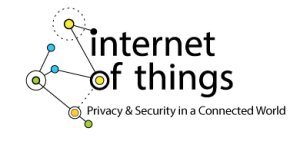21Nov/13Off
Google’s Vint Cerf defines Internet of Things challenges
 He also listed seven key challenges facing the Internet of Things, including:
He also listed seven key challenges facing the Internet of Things, including:
- Standardized interfaces - such as IPv6
- Configuration of massive of amount devices
- Strong access control and authentication
- Privacy and safety
- Instrumentation and feedback
- Dealing with software errors vulnerabilities and software updates
- Potential opportunities for third party businesses
For its part the FTC was looking for answers to its own key questions: For example:
- What are the significant developments in services and products that make use of this connectivity (including prevalence and predictions)?
- What are the various technologies that enable this connectivity (e.g., RFID, barcodes, wired and wireless connections)?
- What types of companies make up the smart ecosystem?
- What are the current and future uses of smart technology?
- How can consumers benefit from the technology?
- What are the unique privacy and security concerns associated with smart technology and its data? For example, how can companies implement security patching for smart devices?
- What steps can be taken to prevent smart devices from becoming targets of or vectors for malware or adware?
- How should privacy risks be weighed against potential societal benefits, such as the ability to generate better data to improve health-care decision-making or to promote energy efficiency?
- Can and should de-identified data from smart devices be used for these purposes, and if so, under what circumstances?
See the full story here: http://www.networkworld.com/community/node/84296/
Filed under: Non-3D stories
Comments Off
Pages
- About Philip Lelyveld
- Mark and Addie Lelyveld Biographies
- Presentations and articles
- Tufts Alumni Bio
More posts
If your company is an ETC member, you can log in and see more news posts at www.etcentric.org